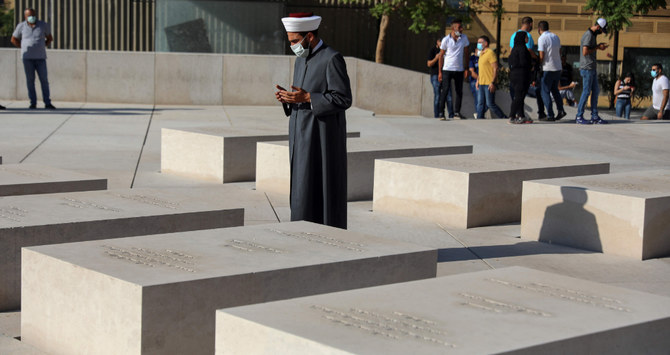BEIRUT: Lebanon has been left shocked and disappointed by the UN-backed tribunal’s findings on the 2005 assassination of former prime minister Rafik Hariri.
While supporters of the Future Movement largely accepted the Special Tribunal for Lebanon’s verdict, some condemned the acquittal of three Hezbollah members accused of involvement in the Beirut truck bombing that killed 21 people along with the Lebanese leader.
Only one man, Salim Jamil Ayyash, 56, was guilty of involvement in the attack, according to the tribunal’s findings handed down in The Hague on Tuesday.
In the wake of the verdict, opponents voiced their dismay on social media, describing the $1 billion tribunal’s declaration that it lacked evidence as a “failure.”
Many said the tribunal had left too many questions unanswered, while others suggested its inability to uncover evidence meant the accused were innocent.
A legal source close to the tribunal told Arab News: “The reason for the shock and disappointment is that the Lebanese are used to Latin criminal law, while the tribunal relied on Anglo-Saxon criminal law.
“This means that Anglo-Saxon judiciaries do not rule except when given solid and convincing evidence, while Latin judiciaries rule against the accused if they contributed to the crime. Then they are tried as an accomplice and receive a lighter penalty, while those who planned the crime are immediately indicted.”
The tribunal said in its verdict that Ayyash, an accused member of the assassination team, was “the primary person guilty of committing the crime of the assassination of Hariri.”
It described Ayyash as “an accomplice in a conspiracy aimed at committing a terrorist act by means of an explosive device and killing 21 other people.”
Ayyash “had organizational links to Hezbollah, according to available evidence,” the tribunal said.
In a 2,600-page ruling, the court added that it “suspects Hezbollah and Syria had an interest in the assassination.”
Many have questioned why the tribunal chose to rely on the Anglo-Saxon legal tradition.
“There were too many options available for the STL. It could have relied on more than one type of criminal law, yet it chose to rely on Anglo-Saxon law because all STL judges have expertise in that area,” the source said.
The tribunal acquitted three suspects — Assad Hassan Sabra, 43, Hussein Hassan Oneissi, 46, and Hassan Habib Merhi, 54 — due to lack of evidence.
The source said: “The STL confirmed that there was coordination between the four accused, and that they cooperated regarding a special mission, yet it did not reach a decision that the three already knew their activity would result in the killing of Hariri, which means that the tribunal did not get clear-cut evidence to accuse them.”
The tribunal said “it was hard to prove that Mustafa Badreddine headed the cell in charge of assassinating Hariri,” adding: “He had the intention to commit the acts leading to the assassination. However, the tribunal cannot be convinced that Badreddine was the mastermind behind the crime.”
Rachid Derbas, a former minister and head of the bar association, told Arab News: “The verdict needs to be read carefully since it contains contradictions, and seems like a political sponge that could be used by Hezbollah and Syria, as well as by the prosecution and victims. The verdict is multifaceted.”
He added: “The verdict indicated that a Hezbollah official along with accomplices committed the crime. Now the prosecution should build on the existing work and pursue the case.”
While Hezbollah MPs and leaders refused to comment on the ruling, the group’s supporters expressed joy at the tribunal’s findings on social media, saying they have never acknowledged the UN-backed court.
Former MP Fares Souaid said the verdict revealed the political motives of the crime.
“The opposition’s call for Syrian withdrawal from Lebanon at the time was the core of the verdict that was issued,” he said.
“The decision relies on facts and indicts individuals. However, it included a political link which was noted by the Kingdom of Saudi Arabia and the US. What is required from the political parties in Lebanon is to recognize this link and answer the following question: Can Hezbollah continue what it is doing?
“The verdict indicted a terrorist group. Nobody will be convinced that Ayyash could have planned, prepared, financed and carried out the assassination had he not been part of an organization with long history of murder,” Souaid said.




























